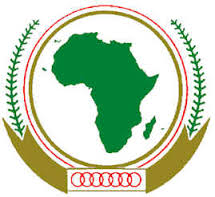Obama to Highlight US Commitment to Africa at AU
President Barack Obama ends his historic East African trip Tuesday, becoming the first sitting American leader to address the African Union headquarters in the Ethiopian capital, reports VOA.
During his speech in Addis Ababa, Obama is expected to reaffirm the U.S. commitment to working with Africa on a range of issues, from global health to climate change.
Last year, at the height of a deadly Ebola outbreak in West Africa, the United States deployed nearly 3,000 U.S. military personnel to help contain the deadly virus that claimed more than 9,000 lives in Guinea, Sierra Leone and Liberia. Despite American service members returning home earlier this year, President Obama said work to contain such outbreaks and epidemics was far from over.
On Tuesday, as the American leader prepared to address the African Union, the U.S government announced plans to invest more than $1 billion to expand the Global Health Security Agenda aimed at preventing, detecting, and responding to infectious disease outbreaks in 17 countries – with more than half of the funding focused on Africa.
President Obama on Tuesday toured the Faffa Foods plant in Addis Ababa, which is supported by the U.S. government initiative Feed the Future aimed at promoting food security to combat hunger, poverty and malnutrition.
According to the White House, Faffa produces 25,000 tons a year of supplemental foods including fortified milk powders and baby food. Some of Faffa’s products are sold to the U.N. World Food Program for distribution to vulnerable populations and refugees along the Somali and South Sudanese border. Faffa is also the primary supplier of baby food for Ethiopian children.
New US Funds for ‘Feed the Future’
The U.S. government announced Tuesday a $140 million in Feed the Future investments aimed at getting climate-resilient seeds – including maize, legumes, rice, and wheat – to smallholder farmers in 11 African countries. The government says the initiative is expected to benefit more than 11 million households across Africa over the next three years.
“The goal is to drastically increase the productivity of… small farmers all throughout Africa because what we know is that a huge percentage of Africans are still getting their incomes from agriculture and most of them are very small plots, and not a lot of technology,” Obama said. “But with just a few smart interventions, a little bit of help, they can make huge improvements in their overall yield.”
President Obama is also expected to address the issue of climate change in his remarks to the AU Tuesday, following talks with AU Commission chair Nkosazana Dlamini Zum. The president’s speech at AU headquarters wraps up his five day visit to Kenya and Ethiopia.
Obama met Monday with Ethiopian Prime Minister Hailemariam Desalegn for what he called “frank discussions” that included urging the government to allow journalists and opposition parties to operate more freely. He said creating space for those voices “will strengthen rather than inhibit” the ruling party’s agenda.
Hailemariam said Ethiopia is committed to improving human rights and governance. “Our commitment to democracy is real, not skin deep,” he said.
South Sudan
President Obama also focused Monday on the civil war in South Sudan, saying before a meeting with leaders from Kenya, Uganda, Ethiopia and the AU that conditions in the country are getting “much, much worse.” He said South Sudan’s president and opposition leaders have been stubborn and are looking out for their own self-interests rather than the interest of the country.
The leaders at Monday’s meeting agreed that South Sudan’s leaders need to reach a peace deal by an August 17 deadline, the White House said. A U.S. official told reporters that the leaders discussed options for penalties if there is no deal, including imposing sanctions and deploying a regional intervention force.
South Sudan was thrown into conflict more than a year and-a-half ago when clashes broke out between forces loyal to the president and vice president.
Countering Terror Threats
Obama is the first sitting U.S. president to visit Ethiopia. In line with Monday’s bilateral talks, the White House announced the United States intends to provide at least $40 million in assistance related to countering violent extremism in East Africa on top of some $465 million in proposed funding for training, equipment, capacity building and countering violent extremist initiatives throughout Africa.
Obama told reporters Monday Ethiopia has played a vital role in fighting the Somali militant group Al-Shabab. He also praised Ethiopia’s economic record, noting the country has lifted millions out of dire poverty.
Rights groups have called for Obama to demand reforms from Ethiopia, where the government controls 100 percent of the seats in parliament and keeps a tight leash on the media.
Before Ethiopia, Obama spent two days in his father’s homeland of Kenya, where he was hailed as a native son.
In a speech before his departure Sunday, the president said Kenya is at a crossroads “filled with peril, but also with enormous promise.”
In Nairobi, the president praised Kenya’s achievements winning independence in 1963, among them ending one-party rule and overcoming the deadly tribal and ethnic violence that broke out in 2007 and plagued the country for several months. “The people of Kenya chose not to be defined by the hatreds of the past,” Obama said, “you chose a better history.”




